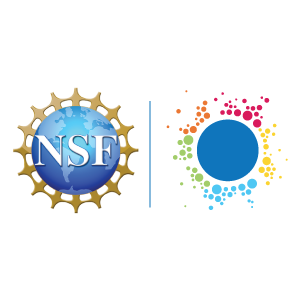From Me to We: Building the NSF INCLUDES National Network
Welcome to the blog series From Me to We: Building the NSF INCLUDES National Network! Over the next several weeks, we will feature the work of different members of the NSF INCLUDES National Network. This post highlights Jhenai W. Chandler and her work with the Florida-Caribbean Louis Stokes Regional Center of Excellence (FL-C LSRCE).
Keep reading to learn more about the FL-C LSRCE and how it collaborates with the NSF INCLUDES National Network!
Please introduce yourself and your project, and share a recent project highlight or accomplishment.
I am the Director of the Florida-Caribbean Louis Stokes Regional Center of Excellence (FL-C LSRCE). The FL-C LSRCE is one of six regional centers of excellence funded through NSF and NSF INCLUDES, focused on collaborative research to broaden participation in STEM degree programs and career fields. Santa Fe College (Gainesville, FL) and the University of the Virgin Islands are collaborative leads of the FL-C LSRCE. The FL-C LSRCE is composed of three Florida state colleges and four HBCUs overall, reaching between 150-200 students in Year 1 of the research.

The FL-C LSRCE seeks to investigate psychosocial challenges faced by underrepresented students in STEM programs and to develop customized interventions to promote a mindset to overcome such challenges. Our Year 1 research will take place at seven participating institutions in the Southeast and the Caribbean.
On July 18-19, 2019 the FL-C LSRCE officially launched with our First Annual Mindsets for STEM Institute, which convened more than 70 STEM faculty from participating institutions and local K-12 science and mathematics administrators and teachers. Attendees participated in engaging sessions led by nationally recognized social psychologists, Omid Fotuhi, Ph.D (University of Pittsburgh), and Valerie Purdie Greenaway, Ph.D (Columbia University).
Faculty who attended gained knowledge and tools to identify psychosocial barriers students experience and strategies to promote a mindset to navigate and overcome such challenges. Participants returned to their respective campuses with a suite of interventions to implement in their classrooms this fall and a network of colleagues for support as they seek to create a Growth Mindset culture on their campuses.
We were excited to see that the Institute met our goals for participant learning. In surveys, participants reported learning about the importance of Growth Mindset for persistence and retention, as well as practical strategies they can implement in their classroom. As one participant noted, these are small changes in classroom practice that can make a big difference!
Can you share with us a resource or connection you have made through the NSF INCLUDES Network, and how it has helped you advance your work?
Since the Convening, I have maintained momentum through information exchanged on the NSF INCLUDES National Network website and in webinars.
The FL-C LSRCE is a new multi-site project. The IRB process was daunting because each institutional partner had a unique process. Colleagues at the Convening shared their previous experience navigating inter-institutional IRB processes. They shared ideas and materials they developed to manage such a large and important process.
I regularly attend the NSF INCLUDES webinars and find them very beneficial, especially the most recent webinar on submitting the annual report. As someone who is new to the NSF community, it was a great way to enter the grant reporting season.
We’re so glad to hear that! Even for veteran annual report writers, NSF INCLUDES annual reports have requirements specific to the program. We’re glad the webinar got you off to a great start!
Can you share how connections made through the NSF INCLUDES National Network have helped advance your work?
I use the member directory on the INCLUDES Network website to inquire about similar projects and research Network members who are engaged in similar work across the country. I foresee collaborating more with partners in the Network around event and convening planning.
Although we traditionally think to rely on the Network for matters such as evaluation, research, and stakeholder engagement, there is also a need to ensure partners are planning and executing high-quality events that add value to participants. This means maybe having an “affinity group” focused on engaging icebreakers that connect to the work, engaging breakout sessions and plenaries, how to utilize technology in planning efforts, and efficient ways to evaluate sessions and conferences.
Those are great points. I’m sure lots of Network members are eager to collaborate with the LSRCEs!
***
Thanks to Jhenai for sharing her work and collaboration experiences with us! Connect with Jhenai though the member directory or reach out to FLCLouisstokes@sfcollege.edu to learn more about collaborating with the FL-C LSRCE!
We are excited to feature other perspectives throughout this series. Contact the Coordination Hub at nsfincludeshub@sri.com if you are interested in contributing to this blog series.

